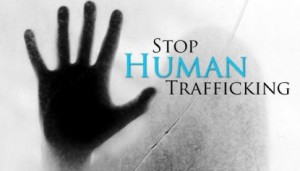 A federal judge has ruled that allowing government grants to Catholic-run programs against human trafficking amounts to an unconstitutional endorsement of the Catholic religion because the Church does not facilitate abortions for trafficking victims.
A federal judge has ruled that allowing government grants to Catholic-run programs against human trafficking amounts to an unconstitutional endorsement of the Catholic religion because the Church does not facilitate abortions for trafficking victims.
U.S. District Court Judge Richard Stearns sided with the American Civil Liberties Union in its case accusing the U.S. Health and Human Services of violating the Establishment Clause by allowing the Catholic Church’s teaching against abortion and contraception to “place a religiously motivated restriction on reproductive services” for human trafficking victims assisted by federal grant money.
“Here … the government defendants’ delegation of authority to the USCCB to exclude certain services from government funding ‘provides a significant symbolic benefit to religion,’” wrote Stearns in his opinion.
The opinion was issued months after the Obama administration decided not to renew its $19 million anti-trafficking grant to the USCCB based on its opposition to abortion. In a decision that reportedly caused major conflict within the HHS itself, federal officials announced that pro-abortion and contraception groups would instead be given priority for such funds in the future.
The ACLU, which filed the lawsuit days before Barack Obama was sworn into office in January 2009, said it continued with the case despite the end of the grant “to ensure that taxpayer dollars are not misused to impose religious restrictions on vulnerable trafficking victims.”
The civil liberties group celebrated the victory as the end of restrictions against “vital” services such as abortion and condoms for trafficking victims.
Government-funded groups “cannot use their religion as an excuse to discriminate and withhold crucial services from victims of human trafficking,” said Brigitte Amiri, senior staff attorney with the ACLU Reproductive Freedom Project, who said abortion and contraception would help trafficking victims “rebuild their lives.”
USCCB spokesperson Sister Mary Ann Walsh told LifeSiteNews.com that the bishops, who joined the lawsuit as a defendant, were “disappointed” with the outcome and would probably appeal the decision.
“A violation of the Free Exercise clause of the First Amendment is a matter of serious concern,” said Walsh.



